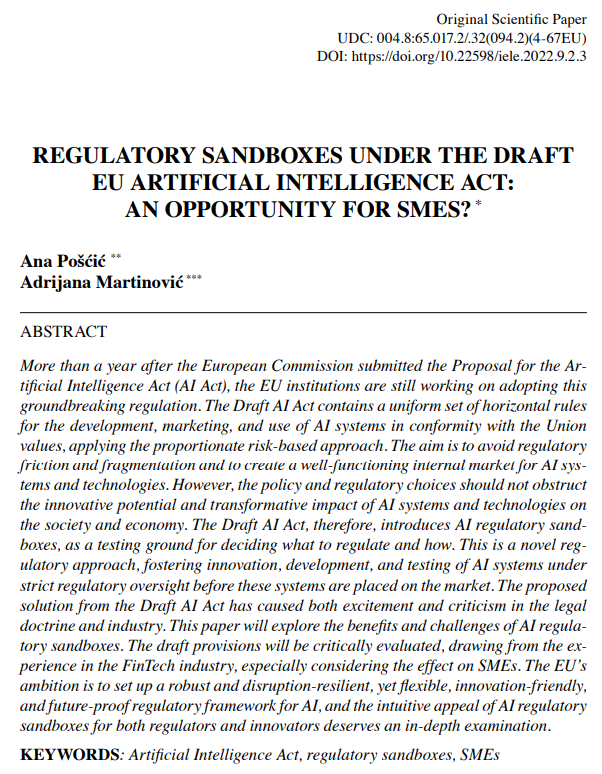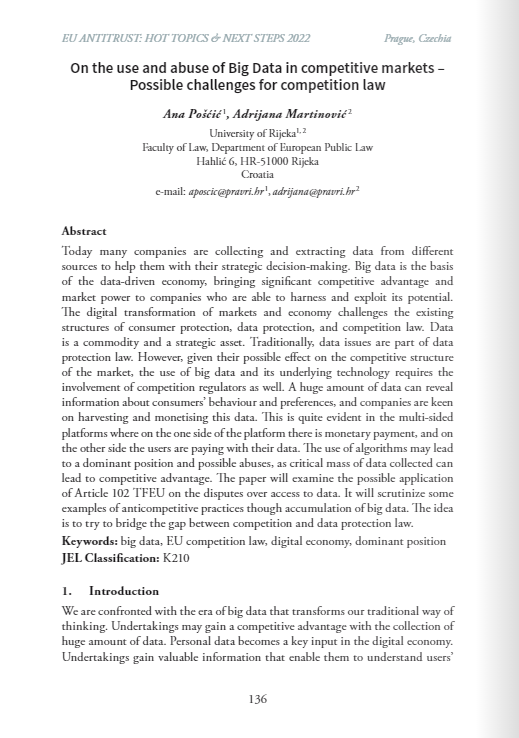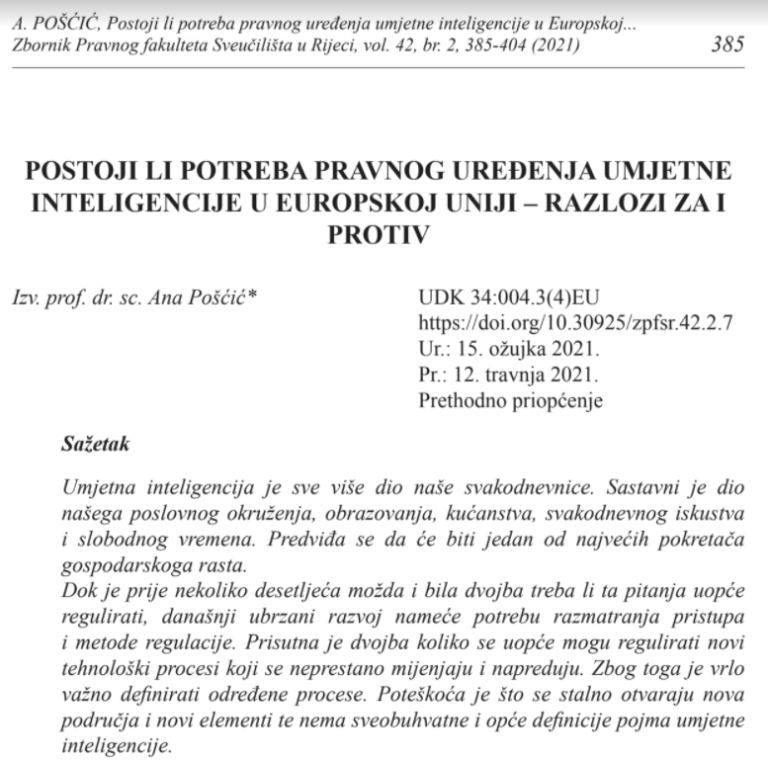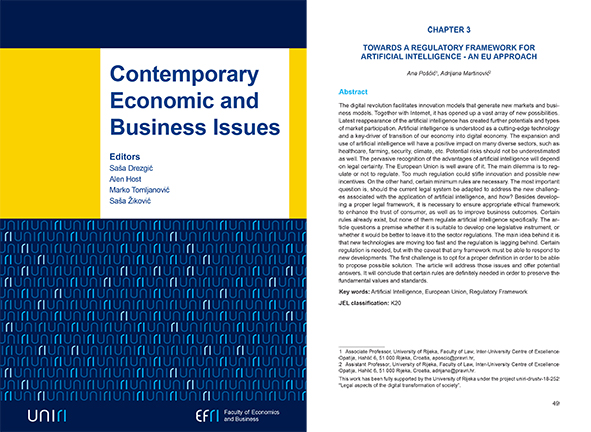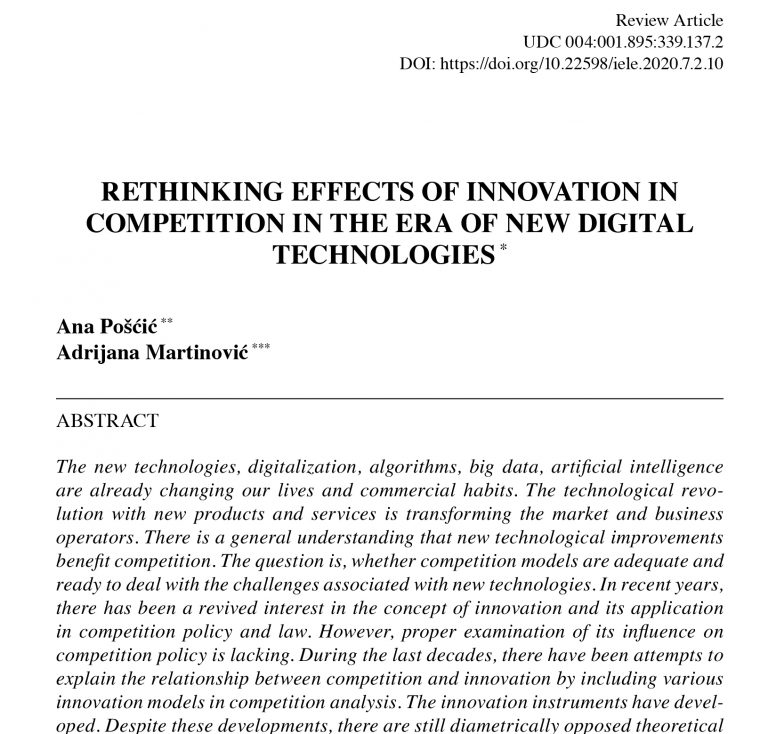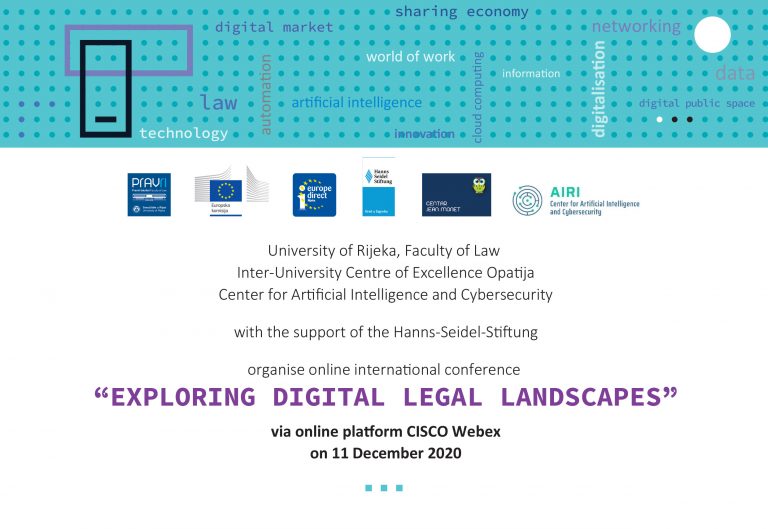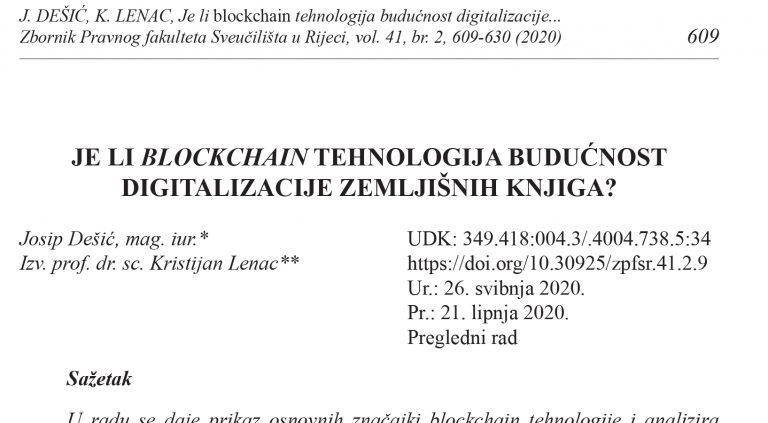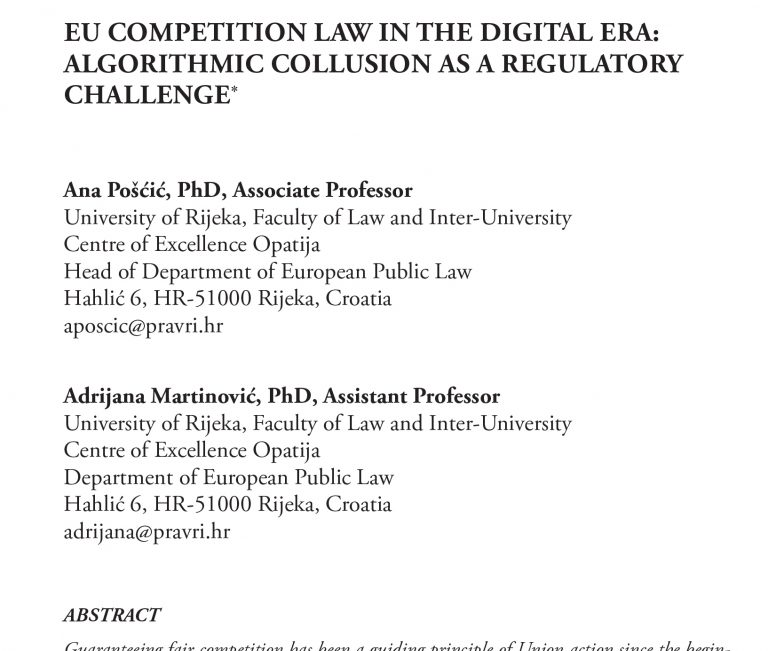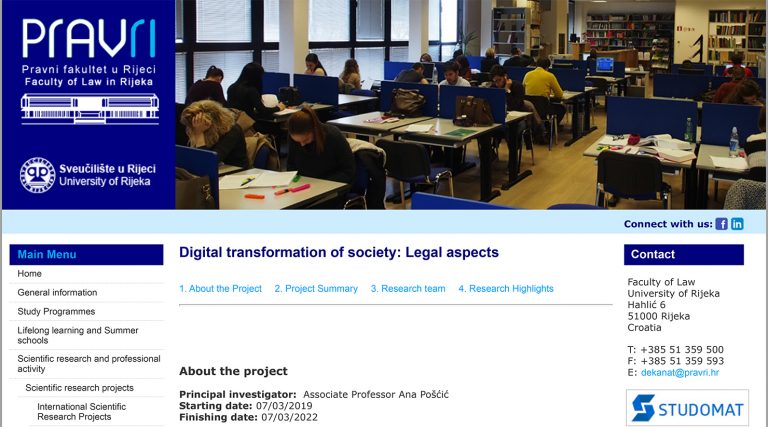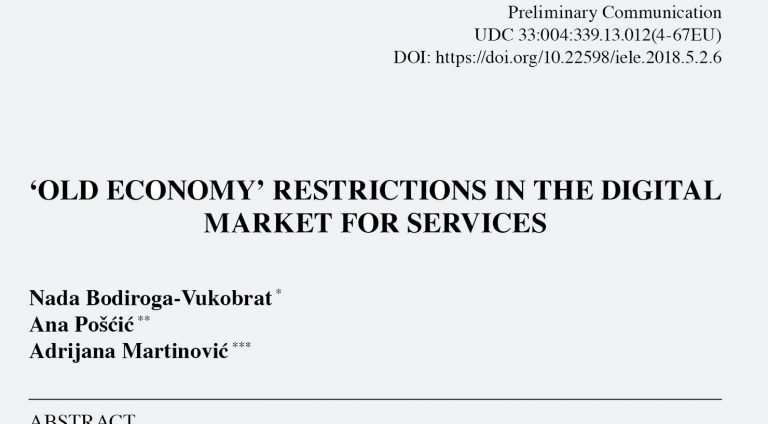More than a year after the European Commission submitted the Proposal for the Artificial Intelligence Act (AI Act), the EU institutions are still working on adopting thisgroundbreaking regulation. The Draft AI Act contains a uniform set of horizontal rulesfor the development, marketing, and use of AI systems in conformity with the Unionvalues, applying the proportionate […]
Laboratory for Legal Aspects of Advanced Digital Technology
On the use and abuse of Big Data in competitive markets – Possible challenges for competition law
Postoji li potreba pravnog uređenja umjetne inteligencije u europskoj uniji – razlozi za i protiv
Umjetna inteligencija je sve više dio naše svakodnevnice. Sastavni je dio našega poslovnog okruženja, obrazovanja, kućanstva, svakodnevnog iskustva i slobodnog vremena. Predviđa se da će biti jedan od najvećih pokretača gospodarskoga rasta. Dok je prije nekoliko desetljeća možda i bila dvojba treba li ta pitanja uopće regulirati, današnji ubrzani razvoj nameće potrebu razmatranja pristupa i […]
Towards A Regulatory Framework for Artificial Intelligence – An EU Approach
The digital revolution facilitates innovation models that generate new markets and business models. Together with Internet, it has opened up a vast array of new possibilities. Latest reappearance of the artificial intelligence has created further potentials and types of market participation. Artificial intelligence is understood as a cutting-edge technology and a key-driver of transition of […]
Rethinking Effects of Innovation in Competition In The Era of New Digital Technologies
The new technologies, digitalization, algorithms, big data, artificial intelligence are already changing our lives and commercial habits. The technological revolution with new products and services is transforming the market and business operators. There is a general understanding that new technological improvements benefit competition. The question is, whether competition models are adequate and ready to deal […]
International conference “Exploring Digital Legal Landscapes” – 11th of December, 2020
Join our online international conference “Exploring Digital Legal Landscapes” organized by Faculty of Law – University of Rijeka, Inter-University Centre of Excellence Opatija, and Center for Artificial Intelligence and Cybersecurity (AIRI) with the support of the Hanns-Seidel-Stiftung via online platform CISCO Webex on 11 December 2020. More on the program here. To join click here.
Je li blockchain tehnologija budućnost digitalizacije zemljišnih knjiga?
U radu se daje prikaz osnovnih značajki blockchain tehnologije i analizira mogućnost njezine primjene u radu zemljišnih registara. Razmatra se kako blockchain može unaprijediti sigurnost i transparentnost registra nekretnina, osigurati integritet podataka, ubrzati i olakšati prijenos prava na nekretninama i postupak upisa. Navode se primjeri Estonije, koja je najdalje odmakla u primjeni blockchain tehnologije u […]
EU Competition Law in The Digital Era: Algorithmic Collusion As A Regulatory Challenge
Guaranteeing fair competition has been a guiding principle of Union action since the beginnings of the European Economic Community. Anti-competitive activities in the internal market, such as agreements between undertakings, decisions by associations of undertakings and concerted practices which may affect trade between Member States and which have as their object or effect the prevention, […]
Digital transformation of society: Legal aspects
Digitalisation transforms and accelerates not only the ways of doing business, but also the ways of thinking. Unprecedented interconnectedness and access in the cyberspace, where everything is available at the touch of a finger, give rise to many issues concerning the transfer and impact of new technologies from the digital world on social relations in […]
“Old Economy“ Restrictions in the Digital Market for Services
Freedom to provide services is one of the cornerstones of the EU internal market. Facilitated by the digital technologies, new and innovative service markets are emerging. However, innovations often bump into existing obstacles. Whether constrained by inadequate regulatory environment, or opposition from existing service providers in the market, the fact remains that ‘old economy’ is […]
